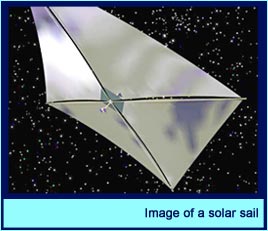 Q. What is the importance of international partners in terms of building the International Space Station? Q. What is the importance of international partners in terms of building the International Space Station?
This is a very, very interesting question. For a project to go to the moon and then to Mars, how can we give something that is worthwhile to each country, each participant? Can we put each country's astronaut on that final flight to Mars? The answer is probably, no, not the first flight. Can we ask people to put billions of dollars for rockets and hardware into this project?
The answer may be yes, if we can guarantee that everyone has almost immediate access to what has been achieved, what has been discovered. This is just my own personal opinion, but I think some form of guiding international space panel could be organized, its membership based on the partnership of the International Space Station, and they should get together at a high level to discuss what each country would like out of these programs. And then they can see what each country can provide, and try to find a balance. There will be many disagreements, but at least they will agree to talk to each other, and agree that docking mechanisms, for example, would be the same, that one rocket might be able to help another rocket. If Russia builds a rocket different from the Americans, can they at least provide emergency assistance to each other in going to Mars, or going to the moon.
Japan in particular has shown interest in solar sails and other more advanced forms of space propulsion. I actually believe this is a very, very good direction to be going in. When we go to Mars, we will need not only the lifeboats or the crew ships, which must go fairly fast because of radiation - the radiation in this journey is significant. But we also need cargo. We need slow boats like tankers. On the sea, we have tankers and then fast ocean liners. We need tankers to carry supplies to Mars. I think solar sails, which Japan already did experiments with last August, would be very, very bright shining mirrors in the sky, pulling cargo slowly out to Mars. That would be an incredible contribution, and would be, in terms of bargaining who sends their astronaut to Mars, of high value.
 Q. What are your expectations for the Japanese lab module, Kibo? Q. What are your expectations for the Japanese lab module, Kibo?
My understanding of Kibo is, it is a facility that is more advanced than the U.S. lab module, particularly in the area of robotics and manipulating materials in the vacuum of space. I know it will also have all of the facilities to accommodate a range of different experiments, but I don't know much more than that.
It will be, from an astronaut's point of view, a very welcome extra facility that will have new equipment and an interesting array of experiments. It will also be the focus for Japanese astronauts to come to the space station, and that will be good because we will have more international colleagues from Japan working with us in space. So I expect not only a module, I expect an astronaut.
 Q. Do you want to go back to space again? Q. Do you want to go back to space again?
I think so, but my goals are either to fly on a new exploration spacecraft, which will probably be another 10 to 15 years from now, so I might be too old or too senior, or I would like to be a part of a large international crew.
|




